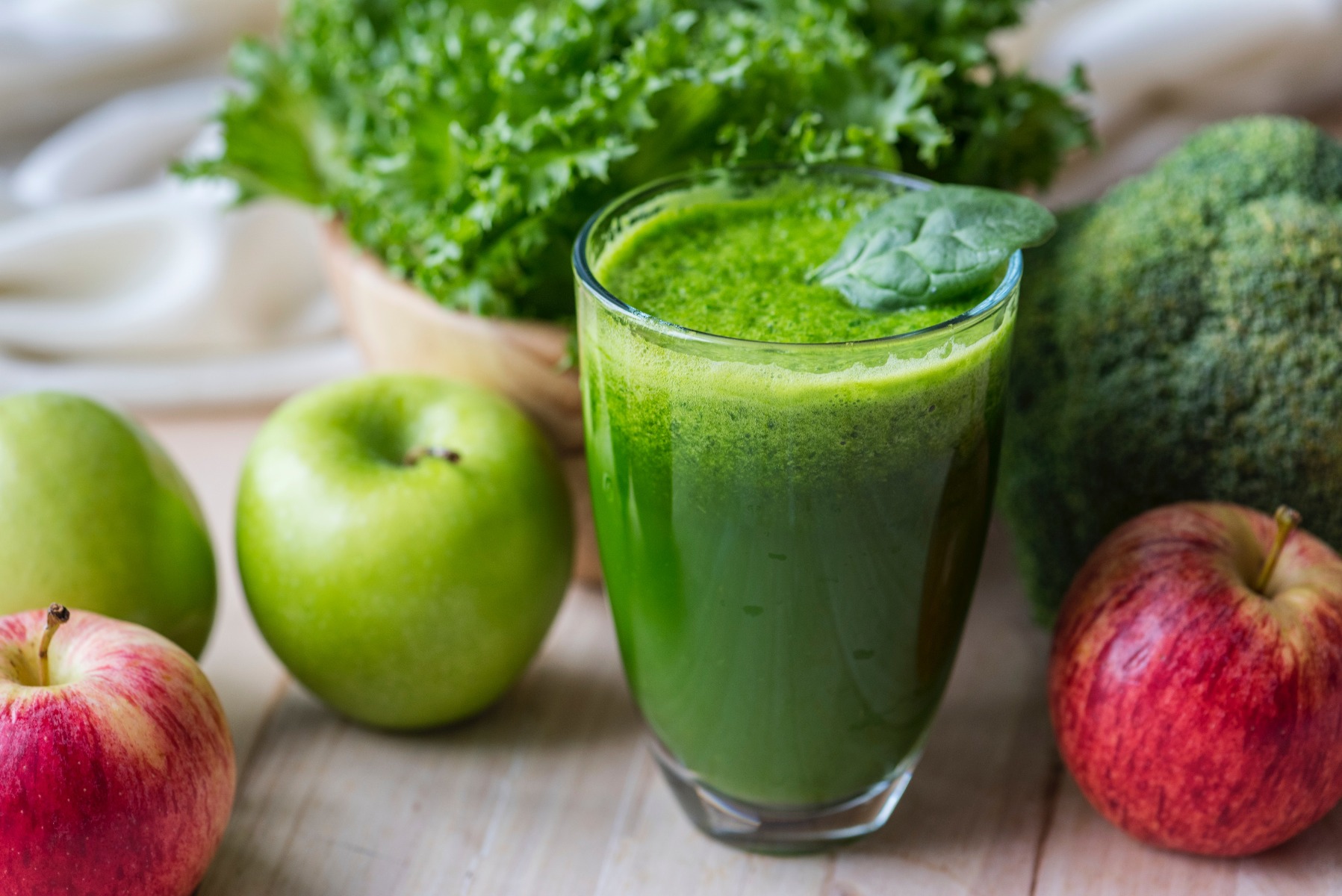Does Detoxing Really Help Health?
It’s Time to Equi-tox!
Spring is almost here!
The days are starting to get lighter, flowers are beginning to bloom and
the dawn chorus is sounding more chirpy and cheerful. The challenging
cold, dark days of winter are certainly behind us and the promise of
longer and warmer days are on the horizon, though many of us have
already had a sneaky peak of summer with the lovely warm weather across
the UK at the end of February.
The Spring Equinox, which this year is on 20th March at 22.58pm GMT, signals the start of gradually increasing hours of daylight. The actual moment of the equinox provides us with equal hours of light and dark, or day and night and occurs when the sun is at right angles to the equator. But what has this got to do with our short and long-term health?
Many classically trained practitioners recognise that the equinox coincides with a massive shift in subtle energies. Whilst this is difficult to measure or quantify, we can agree that many people associate the winter months with a lower energy and if they are in tune with their health, often heavier more contracted feelings sometimes coupled with lower mood. These psychological and physical feelings are then replaced with a much lighter, more expansive energy that increases as we progress further into the height of Summer. Let’s face it – we nearly all feel better and cheerier in the sun and with lighter evenings. Maybe there’s an equinox energy reason for the saying when we’re happy that we have a “spring in our step”?
In classic naturopathic terms it’s often suggested to take advantage of this shift in energy, marking the Spring Equinox an excellent time to shake off the low energy of the winter months and promote detoxification in the body to “lighten the load” physically, mentally and emotionally: What you could call an ‘Equi-tox’.
But this is where views about detoxification can clash…
What is detox?
All health professionals, whatever their training, recognize detoxification as simply a natural physiological process used to rid the body of unwanted chemicals – another term often used is ‘biotransformation’. The body has a sophisticated system of circulating fluids (blood and lymph) to pick up and transport toxins to key detoxification organs such as the liver, kidneys, colon, lungs and skin where, in a healthy body with enough nutrients to produce cellular energy (ATP) and support biotransformation enzymes, toxins are neutralised and excreted.
However, using the term “detoxification” to describe a nutrition/lifestyle plan or programme to stimulate the body’s natural detoxification systems often causes controversy – hardened orthodox scientists and many medical professionals argue that the body is perfectly capable of maintaining effective detoxification pathways despite a person’s health history; what we might consume in our daily diets and what we are surrounded by in our environment.
The two areas of health in functional disorders that conventional medicine tends to regard detoxification as a pertinent approach includes alcohol and drug rehab and the use and excretion of pharmaceuticals. However, a simple review of the evidence implicating certain toxins as a major driver in the chronic disease epidemic tells us that this limited view is very short-sighted.
Those prepared to explore beyond their current margin of confidence clearly see an emerging pattern between the role of external and internally generated toxins and chronic disease development. They share in the knowledge of complementary health practitioners that adjusting lifestyles and modifying enzyme pathways through ingestion of specific concentrated nutrients (from diet and food supplements) aids detoxification processes thus reducing the body’s toxic load.
A really insightful recent review highlights the increasing health concerns linked with our toxic world:
Clark et al (2019) Friends or Foes? Emerging Impacts Of Biological Toxins. Trends Biochem Sci Full paper
Detoxing – why bother?
We are continuously exposed to toxins, not to mention the ones that have accumulated in our bodies, mainly in adipose (fat) tissue, over time. Non-specific symptoms of toxicity are wide ranging and include tiredness, allergies (including food and seasonal allergies like hay fever and asthma), indigestion, heartburn, bloating, constipation and/or diarrhea, bad breath, skin complaints such as eczema and acne, excess mucus and sinus congestion, muscle cramps and joint pain, poor circulation and fluid retention, and even premenstrual syndrome. Whilst we cannot purely ascribe all these symptoms to poor detoxification alone, liver and gut dysfunction are recognized as the root cause and reason for manifestation of many diseases using the functional medicine model.
Internally generated toxins include those that are produced by the body’s own metabolic processes, as well as derived from pathogenic gut bacteria.
External toxins cover a whole gamut from environmental chemicals such as plastics, heavy metals and pesticides that aggregate throughout the food chain, to pollution fumes, as well as from medications.
Some of the most prevalent and concerning environmental toxins concern endocrine-disrupting chemicals (EDCs), including polychlorinated biphenyls (PCBs), polybrominated biphenyls (PBBs), dioxins, bisphenol A (BPA), phthalates, pesticides, fungicides and certain pharmaceutical agents. These toxins not only place a heavy burden on detoxification systems, potentially leading to the sub-clinical non-specific toxic symptoms previously described, but EDCs have also been linked to a variety of chronic conditions such as diabetes, heart disease, PCOS, breast and prostate cancer, obesity, thyroid disruption and both male and female reproductive impairment. Unfortunately, EDCs are now ubiquitous in industrialized countries and place a far heavier load on the human body’s detoxification systems than we have evolved to handle.
Functional medicine therefore believes that modern lifestyles, including stress impacting on the gut microbiome and hormone balance, and poor nutrition leading to nutrient deficiencies add to the body’s toxin burden, over and above the ever-accumulating environmental toxic load. This in turn can eventually overwhelm the body’s natural detoxification processes. This chronic congestion and detoxification dysfunction is therefore a key barrier to short and long-term good health.
We therefore believe that the true nature of detoxification is so much more than fad weight loss diets popularized by newspapers and magazines post-Christmas!
When is the best time to detox?
We’ve already discussed the importance of the Spring Equinox in energy movement. The influence of the equinox is heightened at the moment it takes place but it can also affect us in the few weeks leading up to and after its occurrence. This leads many classically trained naturopaths to suggest following a detoxification plan a couple of weeks around the Spring Equinox to match the rhythms of the body with the natural energy rhythms of the season supporting fluid movement and toxin excretion and in doing so, optimising health.
That said, classically and functionally trained health practitioners alike recognise that detoxification support, as one route to optimise health, doesn’t necessarily require a specific time of year. Many practitioners recommend following a form of detoxification support at the beginning or during a functional health programme. The key is to implement the detoxification support at the right time for the individual and ensure that their detoxification nutrient requirements and elimination routes (mainly liver/bile gut, skin and kidneys) are supported through diet and a variety of different detoxification support techniques (outlined below). It’s important not to undergo any detoxification programme if planning a pregnancy, pregnant or breast-feeding.
Detox Nutritional Support Programme
Detoxification support programmes are often one to three weeks in length and can use specific detox nutritional support kits through consultation with a trained professional (for more information please see the BANT and NNA nutritional therapist association websites).
1. Diet
In order to encourage effective detoxification, as well as other homeodynamic functions, the body needs to have the right internal acid/alkaline balance, measured as pH. Specific nutrients are also required, such as magnesium, zinc, B vitamins and Sulphur amino acids, to support cellular energy (ATP) production, phase I and II detoxification pathways and effective toxin elimination from the body, mainly via bile and gut.
For more information about alkaline diets please read the Nutrigold blog: Do Alkaline Diets Really Work?

Juicing is a highly beneficial and easy way of alkalising the body and boosting levels of important nutrients, as well as supporting hydration. Raw vegetables contain certain enzymes that help digestion, as well as a concentrated supply of phytonutrients, including important antioxidants, which cannot necessarily be obtained by eating normal daily amounts of fruit and vegetables. One of the best ways to alkalise the body is achieved by regularly drinking ½ litre of fresh green juice including spinach, kale, cucumber, celery and parsley. Organic greens powders are a great way of boosting alkalinity in the diet, with the addition of concentrated powders to your juice including spinach powder, spirulina and sea-greens.
2. Detox Supplement Support
- Vitamins and minerals are required as detoxification enzyme cofactors, alongside Sulphur amino acids, such as L-cysteine, to support phase 1 and 2 detoxification pathways, as well as production of the body’s master antioxidant glutathione.
- Organic magnesium citrate and bioactive forms of B vitamins including P5P (Vitamin B6), Quatrefolic (reduced folic acid) and methyl cobalamin form of Vitamin B12 all support energy product and enzyme functions in the body.
- Digestive support for toxin biotransformation and elimination includes lecithin powder to support bile function, broad-spectrum plant digestive enzymes and beneficial gut bacteria in probiotic supplements.
- Organic greens powders support the body’s alkalinity and provide other important phytonutrients, vitamins and minerals.
- Botanicals such as peppermint, garlic, papaya and fennel support gut function and toxin elimination.
- Whole leaf aloe vera juice supports gut function and promotes growth of beneficial gut bacteria.
3. Detox Lifestyle Support
A combination of the following techniques can be used as part of a detoxification nutritional support programme, or as directed by a trained practitioner.

- Epsom salt bath – Epsom salt is magnesium sulphate that is absorbed through the skin. Sulphates aid detoxification pathways and toxin elimination may occur through the skin by mild sweating after a warm bath. Magnesium is a cofactor for many enzymes including detoxification pathways in the liver. Please note that these types of baths are not advisable for people with high blood pressure, heart problems or diabetes.
- Castor oil packs – External use of castor oil in the form of castor oil packs can be used to support liver and gut function.
- Dry skin brushing – Body brushing for 2-3 minutes a day on dry skin (before shower or bath) encourages lymphatic circulation.
- Enemas and Clysmatics – Organic coffee enemas powerfully stimulate liver detoxification pathways through direct absorption via the hepatic portal vein from the colon to liver. Enemas and Clysmatics also support bowel eliminations.
What to expect during a detox
During a detoxification programme, some people experience ‘Herxheimer’ reactions, i.e. a worsening in symptoms before they improve. Traditional naturopaths describe this as a natural ‘healing crisis’ though science enhances this description as a sudden and exaggerated inflammatory response provoked by releasing toxins in the blood and tissues faster than the body can comfortably handle. These reactions typically occur as cold-type symptoms including runny nose and/or fever, skin rashes, acne etc. Whilst inconvenient, they are not long lasting in nature if appropriate detoxification support is provided. Energy is also being used for detoxification purposes so the individual may feel the need for more rest at this time.
So why is detoxification support not universally accepted?
The question that needs to be asked is:
Why do we pay so little attention to helping the natural detoxification processes cope with the body burden of EDCs, and other toxins, that we all carry today?
There is no doubt that many orthodox clinicians and practitioners have limited or no training in this field of health management and many are intellectually compromised by the absence of adequate data and meaningful discussion. This void then permits negative, as well as overly confident positive comments to dominate the mainstream press, rather than a grounded clinically driven discussion.
Functional Medicine training has long regarded this as an area in need of continuous update and development, so that contemporary data is mixed with practical strategies to support detoxification, which are legitimate aims in addressing human health; whilst we are uniquely capable of meeting most toxic insults, there are significant variations in the genes that manage these enzymes, many of which are co-dependent on micro and macro nutrients.
If you’re interested in the area of detoxification support and health and are new to the world of nutrition then you might like to learn more from the nutrihub foundation course. If you are already trained in an area of health and want to learn more about the link between functional nutrition, health and disease including detoxification support then the nutrihub advanced course is for you! Also, take a look at the nutrihub website for more information including CPD accredited webinars on a variety of interesting health topics.
Wishing you the best of health
Elisabeth
References
- Bagby et al (2018) From the Outside In: Biological Mechanisms Linking Social and Environmental Exposures to Chronic Disease and to Health Disparities. Etiology Sci AJPH 109:S1
- Sun G, et al (2016) Association between Air Pollution and the Development of Rheumatic Disease: A Systematic Review. Int J Rheumatol 2016:5356307
- Khafaie MA, et al (2016) Critical review of air pollution health effects with special concern on respiratory health. J Air Pollution Health 29;1(2):123-36
- Kabashima K, et al (2016) Linking air pollution to atopic dermatitis. Nat Immunol 16;18(1):5-6
- Gao X, et al (2017) Ozonized carbon black induces mitochondrial dysfunction and DNA damage. Environ Toxicol 32(3):944-955
- Diamanti-Kandarakis E, et al (2009) Endocrine-disrupting chemicals: an endocrine society scientific statement. Endocrine Rev 30(4):293-342







